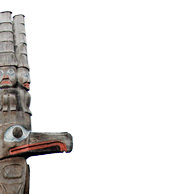 |
|||||||||
 |
|||||||||
 |
|||||||||

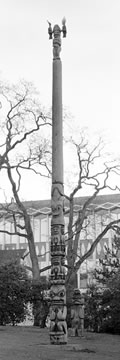 Thunderbird
Park, 1978. Andrew Niemann photograph. Thunderbird
Park, 1978. Andrew Niemann photograph. RBCM PN 14072. |
Gitxsan Pole, 1954
|
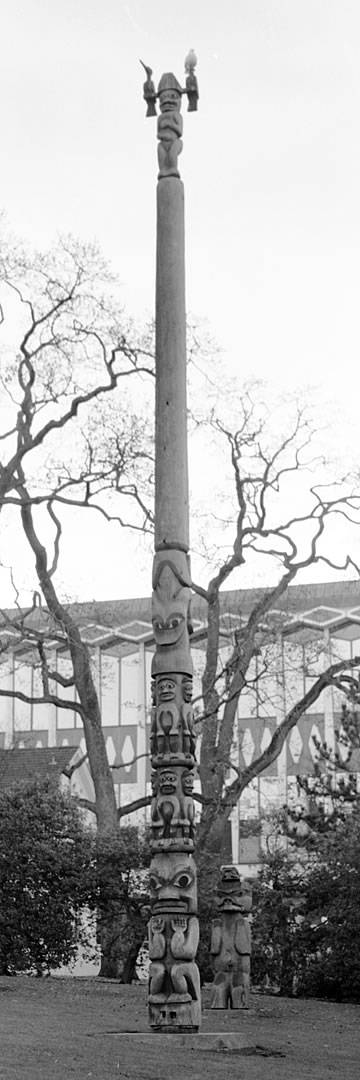 Thunderbird
Park, 1978. Thunderbird
Park, 1978. Andrew Niemann photograph. RBCM PN 14072. |
Great Protruding (Being) from the Lake wearing headgear called the Brave’s Helmet, with Real Kingfishers on either side. |
| Uncarved length of pole. | |
| Hanging Frog, a crest that refers to the history of Neegyamks, a chief’s daughter who disappeared one night. After two years, frogs appeared in the chief’s doorway and led the people to a nearby lake. The lake was drained and a large number of frogs took flight. Neegyamks died and her father killed a large frog and took it for a crest. | |
| Reflections in the Water, a crest derived from the legend of a
woman who, when crossing a lake on a raft, saw faces of children
in the water. Her family also saw the faces and composed a song to
commemorate the adoption of the reflections (or shadows) as a crest.
The woman and the children she saw in the water are shown on the
pole.
|
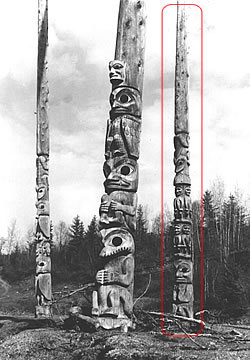 Gitsequkla
1946. T. W. S. Parsons photograph. Gitsequkla
1946. T. W. S. Parsons photograph. RBCM PN 3814-b. |
|
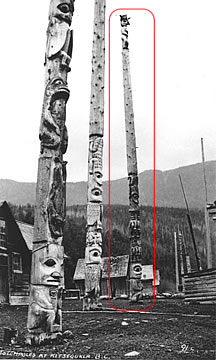 Gitsequkla.
Mogensen photograph. Gitsequkla.
Mogensen photograph. RBCM PN 11996. |
|
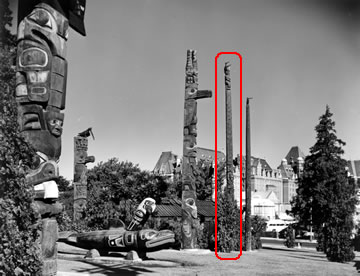 Thunderbird
Park, 1957. BC Government photograph. Thunderbird
Park, 1957. BC Government photograph. BC Archives I-21002. |
|
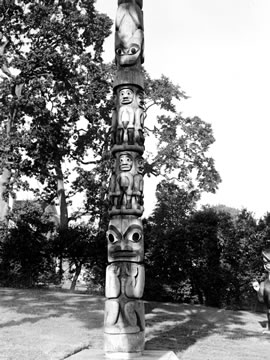 Thunderbird
Park, 1954. BC Government photograph. Thunderbird
Park, 1954. BC Government photograph. BC Archives I-26973. |
| Back to Map |
